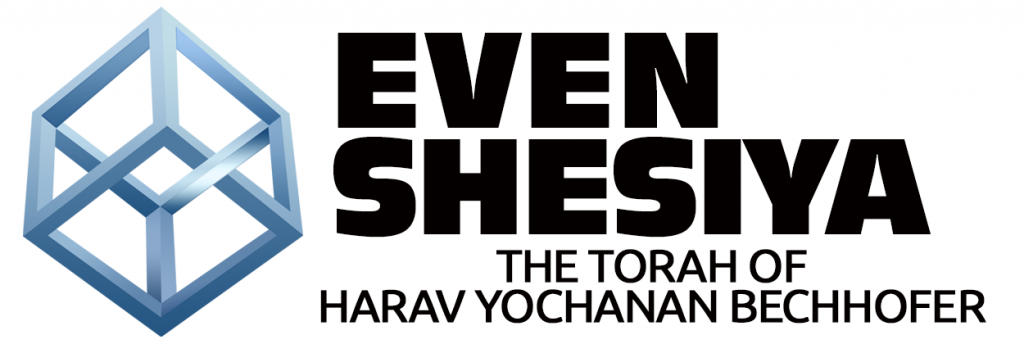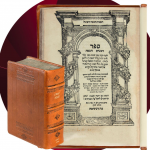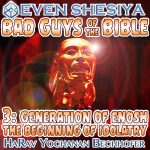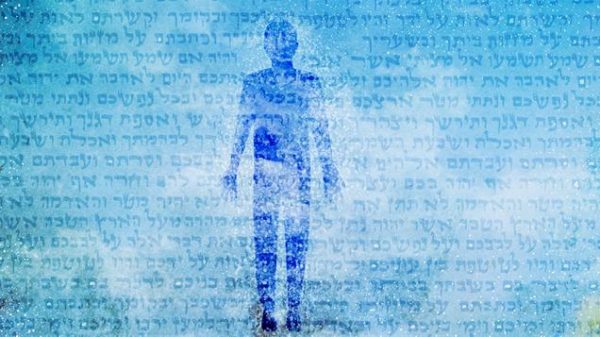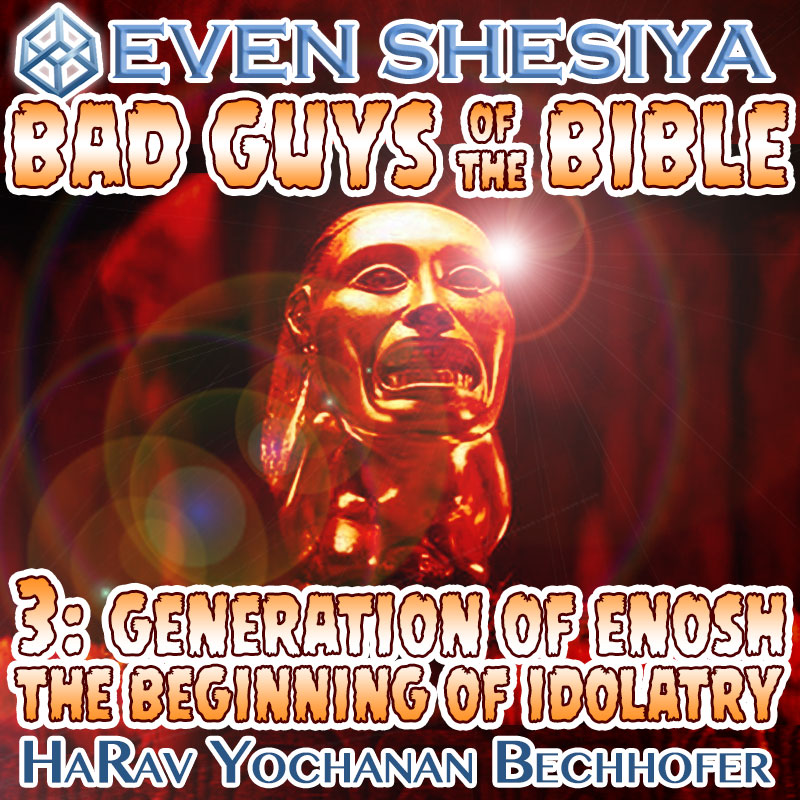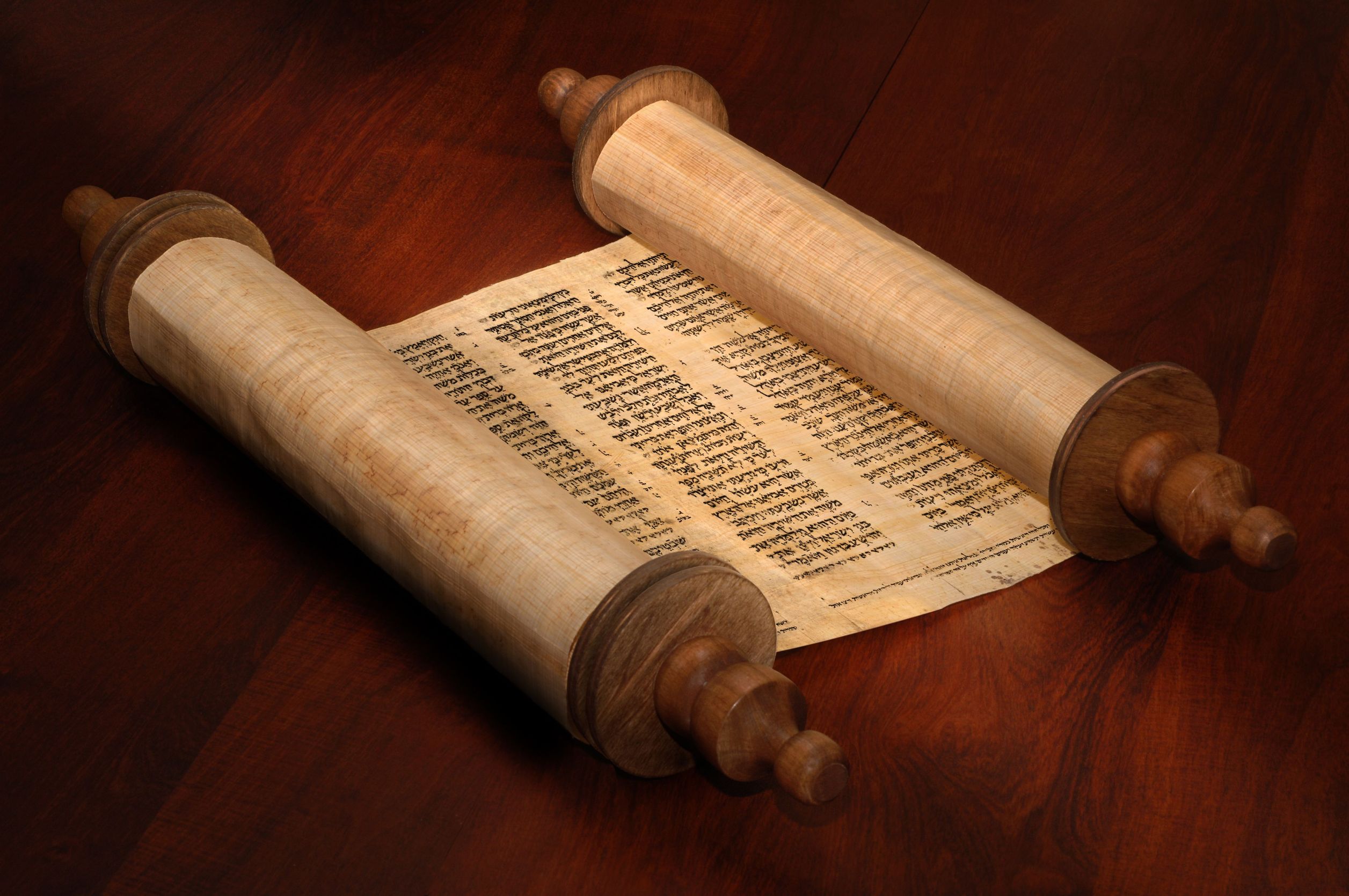Click here to download PDF
לע״נ אמי מורתי שולמית בת הרב דוב יהודה ז״ל
Why Dayanim? Why sitting?
At the beginning of the parsha Avraham Avinu is recovering from Bris Milah and nonetheless sitting at the opening of the tent in the heat of the day, hoping to invite in guests, when Hashem appears to him. Rashi on the word “sitting” points out that the way it’s written it could be read past tense because Avraham in deed wanted to make it ‘past tense’ and get up in honor of the Divine Presence but Hashem told him: “sit! and I will stand and you will be a sign for your children in the future I will stand amongst the “Dayanim” -rabbinical judges as they sit…….”. Why is this the place to elude to the future “Dayanim” and why is sitting the ultimate sign of the “Dayanim”? The amazing thing is that just a little bit later, when the Angels come to Sedom it says: “…and Lot was sitting at the gate of sedom” and Rashi says that on that very day they had appointed him a judge! It’s amazing! It is the same allusion: “sitting” – referring to judges. What is the meaning of “sitting” and is it a coincidence that the Jewish judges are alluded to on the very same day that Lot is appointed a judge in sedom?
What was Gavriel doing there?
Rashi tells us that the Three Angels that visited Avraham had three different functions: Michoel was there to give the good news that Avraham and Sarah would have a child. Refael was there to heal Avraham and he subsequently went to Sedom to save Lot. Gavriel was there to destroy Sedom. If Gavriel’s function was to destroy Sedom he should have gone directly to Sedom! Why did he appear before Avraham Avinu?
Just Beg for mercy!
After Hashem informs Avraham of how He intends to destroy Sedom Avraham acts as an advocate on their behalf. Avraham isn’t begging for mercy but rather acting as a defense lawyer arguing law with Hashem! He uses the Divine name “Adnus” (Alef-Dalet-Nun-Yud) which is one of the Names associated with the Divine attribute of judgement! He argues law with Hashem and appeals to Hashem’s attribute of being the “judge of the whole Earth”. When Avraham cannot make an argument for sparing one of the cities of Sedom for less than 10 people he simply remains quiet! As Rashi explains the situation: “once the defense Advocate is quiet, the judge leaves, once the judge leaves the defense Advocate leaves”. Why did Avraham choose to do this in a framework of law with the Divine names that refer to the attribute of law? Why not simply beg for mercy and invoke the Divine names of kindness and mercy?
What’s wrong with Sedom money?
In last week’s Parsha, after Avraham at great personal risk worked very hard to liberate Sedom , he forcefully turns down the king of Sedom’s offer to give him Spoils of War. He wouldn’t take “from a string to a shoelace”. This is very strange and atypical of Avraham’s behavior! He had no problem taking a lot of money from Pharoh in last week’s Parsha and he has no problem taking a lot of money from Avi Melech in this week’s Parsha! When he took money from Pharoh and Avi Melech it was virtually passive income! By Sedom he actually worked very hard and truly deserved to be compensated for his heroic Act! why is it that when he clearly deserves to be rewarded he actually turns it down and does not want one penny from the king of Sedom?
Sedom Law
Sedom was not a lawless Society by any stretch of the imagination. They had a justice system and Lot himself served as one of their judges. The Mishna inn Avos says: “[he who says] mine is mine and yours is yours is the average person – but there are those that say it is the attribute of Sedom”. What’s mine is mine and what’s yours and yours is sounds like exactly what the law says! However, the people of Sedom were extremely rigid about “mine is mine and yours and yours” to the point of outlawing any form of kindness! They had strange deviant laws that actually protected people’s monopolies! In halacha we have the concept of “Kofim al midas Sedom” where we force people not to act like people of Sedom. Those cases are talking about when a person is a ‘stickler’ for his rights, even if he isn’t losing anything by relenting, and all he’s doing is just causing pain inconvenience to others.
Sedom vs the Flood and the Tower
There was actually a deep philosophy behind their deviant radical application of the concept of “Law” and “rights”. They looked at the societies that came before them and failed. The generation of the flood was overly promiscuous and their final decree to be destroyed came because of theft that was rampant. From there they learnt that it’s wrong to break out of your boundaries and invade someone else’s space and belongings. They analyzed the generation of the Tower of Bavel that was dispersed. They had tried unifying and converging for a single cause. The “Tower” represented the “state” to which everyone was supposed to cede their individual liberty and serve – that didn’t work out either. Instead of coming to the correct conclusion that the only way for society to endure is to serve Hashem, they thought they had come up with a different plan that cannot fail: by keeping everything in its rightful place, not invading anyone’s else’s boundaries by theft and not converging individual boundaries into one Collective like the Tower of Bavel. In their view everyone has their own space and their own resources that were viewed as “his by inalienable right” and therefore they viewed kindness as ruining the cosmic balance! Commerce was permissible because whatever you are transferring out from your Sphere of influence is being replaced by something of equivalent value, so the cosmic balance is maintained – but that’s only if there’s a fair exchange!
Avraham vs Sedom
Avraham Avinu understands the Sedom headspace from the attitude of the king of Sedom. Avraham was the Liberator and hence the Conqueror of Sedom. By the law of Conquest (“Kivush”) all of Sedom belongs to him and the king of Sedom is not in the position to make any deals! Avraham owns both the possessions and the people and seeing that the king of Sedom viewed himself as innately master of both people and possessions and “is being nice” by letting Avraham the Conqueror “just take the possessions” is something that Avraham wanted nothing to do with! He sticks it in the king of Sedom’s face when he says: “I swear by the Hashem the L-rd on high the Creator and owner of Heaven and Earth I will not take anything not a string not a shoelace, so you should never say I made Avraham rich”. The king of Sedom will forever view it that his money is in Avraham’s Pockets! When Pharoh gave, he gave wholeheartedly and never viewed it as his money from the moment onwards. When Avi Melech gave Avraham money he never viewed it as his ever again. The king of Sedom viewed his possessions as innately his and he will always look at it as “Avraham is Rich with my money” and such money Avraham doesn’t want to touch because it’s fueled by heresy as if man innately owns things – when the whole world belongs to Hashem.
Real Stability
With this we could understand why when witnessing the destruction of Sedom Avraham is standing in his regular place. Chazal tell us that at that moment he instituted Shacharis. Another thing Chazal learn from that pasuk that he was standing at the place where he stood before – that we should have a set place for Davening. The idea of Davening in general and having a set place for Davening in particular is that we realize that the world belongs to Hashem and therefore we must ask him for our needs because everything is His. As we ever-dependent on Hashem, we attain stability by being consistent and stable in our davening. Having a set Place for Davening represent being consistent and stable in our prayers and therefore our prayers will give us our stability. To the extent that our prayer is stable our existence is stable. That’s what Chazal mean when they say “he who sets a place for his prayers the L-rd of Avraham will always be there to help him”: stability comes from prayer and therefore prayer itself should be stable consistent and stand firm and that is what’s represented by “set place for prayer”
Avraham’s Dual Legacy – Why ‘Brachos’ is in ‘Seder Zeraim’
With this we could understand that the two legacies that Avraham Avinu is known for are not two separate disjointed ideas but have one single common root. Avraham Avinu is known to be the pillar of faith. He taught the whole world that there is a G-d and He owns the world. Avraham was also known for his attribute of “Chesed”- kindness. Even as he is recovering from Bris Milah he just wants to invite guests! These two ideas are integrally connected! Only with the faith and conviction that Hashem created all, owns all, and provides all can a person be kind to others. Without faith no one in their right mind would ever bestow kindness on anyone else because you are depleting your assets! It’s easy to give things away if you believe that the world belongs to Hashem and it is all just on loan to us on condition that we use it correctly and if we ever need more we just ask him and he will give! This is the secret that “Seder Zeraim”, which talks about giving charity, is called “Emunah”-faith (Shabbos 31). In the days of yore when it was an agrarian society you gave away much of your crops that grew through the sweat of your brow: Teruma, Maaser Rishon, maaser Ani, Leket, shikcha, Peah, and you let anyone take anything they want during Shmitta! That’s the secret that Maseches Brachos that talks about Shema, Tefillah, and Brachos in “Seder Zeraim”! With Shema, Tefillah, and Brachos, we acknowledge that Hashem is the Creator and owner of all. Because of the faith professed Shema, Tefillah, and Brachos, we can actually give away our hard-earned money and possessions.
The Avos – the pattern of creation
However, the world could not endure on kindness alone. kindness does not differentiate between Good and Evil and the evil people can flourish and ruin the world if there’s no accountability. More importantly, there is no strength, stability, or commitment, without the attribute of Gevurah/Din that understands the concept of being committed and overcoming all obstacles to honor that commitment, even to the point of self-sacrifice (for in-depth discussion of the necessity and the stability granted by midas HaDin see “Even Shesiya” on parshas Nitzavim “solid support from Midas HaDin”). There’s not just for the sake of the stability of society it was also true for the stability of Avraham’s Legacy. This is the secret that he wanted a son so badly. He knew that the “nefesh She’asu b’charan”-all the people that he converted don’t have the “Gevurah”- strength to stick with it even when the going gets tough. Chesed is just voluntary and lacks commitment. Avraham knew that his legacy would last only if he has a son like Yitzchak whose attribute of “Gevurah-Din” – strength/law which would stabilize his legacy. In the depth of it, the Avos are actually restarting the world! Hashem initiated the world with a Will to bestow goodness, as it is impossible to initiate in any other way, because nothing was created yet to do a good deed to earn its being created! All beginnings must be out of pure benevolence! After that initial kind Will to bestow goodness, Hashem contemplated creation with the attribute of “Din” to give it stability and structure, Then the “Din” partners with “Rachamim”-Mercy to finalize creation. That is the Continuum of Avraham – Chesed- the original will to bestow goodness, Yitzchak – Din parallel to contemplating creating the world with “Din” and Yaakov is the “Rachamim”- mercy that’s added to finalizes creation. The three Avos finalized the creation of the Jewish people who change the world.
Torah Law
Just like Yitzchak was Avraham’s biological son, so also conceptually his attributes of Guevara-Din strength and law are actually derivative from the Divine kindness that Avraham represents. Kindness is a central theme in Jewish law. Jewish law includes the laws of charity and Jewish law always seeks to find ways to declare someone innocent or at least spare him the death penalty, to the point that Chazal tell us according to one opinion that a Sanhedrin that executes 1 in 70 years is a “killer Beis Din”. Rebbe Akiva said that if he would have sat in the sanhedrin no one would have ever been executed ever! The greatest kindness of Torah law is that it saves the innocent from their oppressors, upholds righteousness and punishes evil, which is to save the world! That’s the secret that the aforementioned Gemara (Shabbos 31) refers to “Seder Nezikin” – the order which talks about our judicial system, all our monetary laws, and laws of capital punishment is called “Yeshuos”- salvation. Torah law saves the good from the evil and that is the greatest kindness because without it the world would run amok and be chaotic. Torah law causes the world to be settled and stable with the good upheld and the evil pushed off center and eventually out of existence.
Bris Milah & Dayanim
The very first act of negating evil starts in the individual, Bris Milah! It is the 8th mitzvah in history representing that it is above nature. As we’ve explained last week, the World naturally tolerates the coexistence of good and evil. The evil in man is physically represented by the “Orla”-foreskin. Chazal tell us the “Orla” first emerged after Adam ate from the tree of knowledge which adulterated him with evil. Ridding ourselves of the foreskin is to rid ourselves of evil and it paves the way for the Jew to be able to learn Torah and further purify himself. That’s why as Avraham is recovering from Bris Milah Hashem gives him a sign that in his descendants there will be judges. This is because Bris Milah is to the individual what the judges are for the World! The gemara says in Baba Basra: “Any judge that judges true judgment is a partner of Hashem in creation”. Creation is not fully formed yet. It has the chaos of evil and the judges who bring Justice to the world uphold the good and rid it of evil. That’s why they are “Yoshev”- sit. “Yishuv” also means to settle. What causes the world to be settled and stabilized is Divine Judgment!
Yitzchak vs Lot
The good news that Yitzchak, who the vehicle of bringing Divine Law into the world, is to be born is all an extension of Bris Milah. Yitzchak coming into the world is actually the ‘good twin’ of Sedom! Sedom had a perverted the concept of law to make it a form of Cruelty and they felt intuitively that they’re about to be replaced with Divine law. That’s why on the very same day that Avraham gets the news that he’s going to have Yitzchak they appointed load a judge who is from the house of Avraham! They were hoping to block the Divine Law coming into the world and stop it from replacing their law by appointing someone from the house of Avraham as one of their judges.
Law from Love
Our law stems from kindness just like Yitzchak was born to Avraham. Therefore, the Archangel of Gevurah who metes out judgement, Gavriel, whose name alludes to Gevurah first comes to Avraham whose attribute is “Chesed”-kindness before going to destroy Sedom. There’s a statement being made: Divine might and Justice is rooted in love and kindness! This is further played out by Hashem himself who informs Avraham and gives him a fair Chance to plead on behalf of Sedom before He actually destroys it.
Demonstrating the Love of Law
Avraham pleads for Sedom as a lawyer making legal arguments and not by begging for mercy. Sedom doesn’t believe in kindness and mercy and since they don’t believe in those ideas those ideas cannot advocate for them! Just the opposite! Since they were in violation of those ideas, those ideas would just prosecute against them! [see Ramban by the Meraglim that when Moshe invoked the middos HaRachamim he left out “Emes”- truth because that attribute cannot advocate for them – it would only work against them because they were in violation of Truth with the ‘fake news’ about Eretz Yisroel]. Avraham had an idea, he was going to argue for Sedom on the basis of law itself! His statement was, particularly when he was virtually accusing Hashem: “…..He who judges the whole world will not do justice?”: let’s show them what real Justice is! Real justice is about saving and not only are the Righteous saved but in their Merit (-law) others are saved also! This is what we say in our daily prayers in the Shemoneh Esrei in the bracha for the restoration of the judges and justice: We asked for our judges to be restored with our full judicial system and that leads to: “…. and You (Hashem) Reign Over Us with kindness and mercy”. Real judgment corrects the world, so the world can receive kindness and mercy as opposed to the Judgment of Sedom which is anti-Chesed. Avraham avinu wanted to save them on the only basis open to them: “let’s show them what the real Justice of the Divine is about”.
Good Shabbos.
